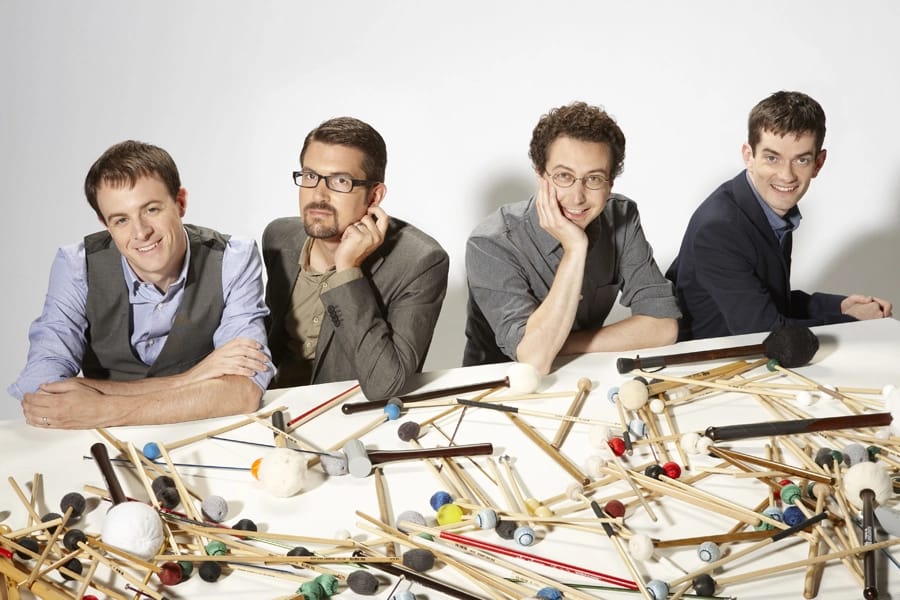
articles / Percussion
The Democratic Playing of Third Coast Percussion…

San Francisco Performances welcomes Third Coast Percussion back to Herbst Theatre tomorrow night, for a program that will include the West Coast premiere of a new work written for them by Philip Glass. David Skidmore says the group began playing together in 2005, when they were studying at Northwestern University in Chicago. They’ve worked with many composers, commissioning works, but this is the first time they’d approached Glass, whose piece Perpetulum is also on their latest CD.
There’s more information about the performance at the San Francisco Performances website.
Being a member of this sort of chamber group has different challenges than some of the other, more conventional groupings. “Percussion ensembles are rare because there’s a great deal of infrastructure that needs to exist for a percussion ensemble to perform and rehearse, and tour,” Skidmore says. “We play different instruments on almost every piece, so there’s plenty of variety for everyone… Unlike a string quartet, where at least traditionally, like the first violin maybe has a lead part… In percussion ensemble music, that’s not the case. Each player might be completely equal, but just playing on different instruments.” None of them specializes on a particular instrument, so they all do it all – and Skidmore jokes, because they actually dole out parts alphabetically, so he’s always Part 4. One of the other things that a string quartet doesn’t have to worry about is their geography on a stage filled with instruments. “Percussion ensemble is as much visual as it is aural. We’re playing a bunch of instruments that are spread out across the stage, and just the physicality of the motions of playing percussion music, it does end up looking like choreography.” Because many of the instruments that they have, they’ve either built or found, they frequently make suggestions about possible timbres with composers they work with, and collaborating with Glass, Skidmore says, was wonderful: “Of course we were, you know, a little bit intimidated, just because he’s such a looming figure in the field of classical music. But he couldn’t be a nicer and more open collaborator.”






